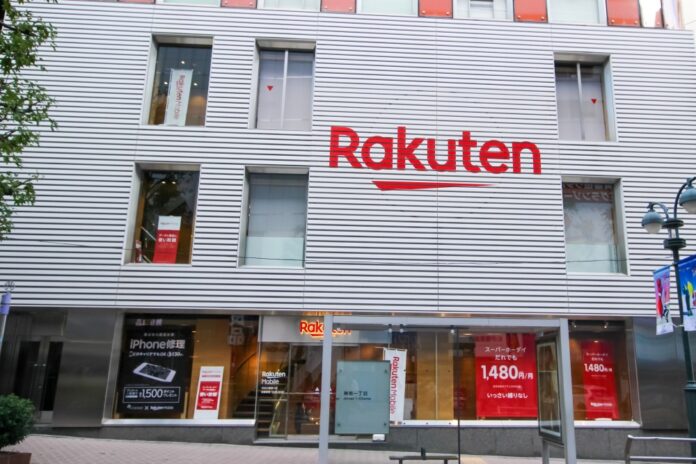Price is the big selling point, but coverage is limited, roll-out information and handsets thin on the ground, and its plans for global domination are still just plans.
The new mobile operator has been charging JPY2,980 (€24.10) per month for its 4G service, which is says is 67% less than similar services from its rivals.
Giving it away
The new 5G service, Unlimit V, will cost the same as 4G, meaning it is 71% cheaper than other Japanese service providers’ 5G offers, according to Rakuten’s CEO, Hiroshi Mikitani.
Calls are unlimited on Rakuten’s own network but there are limits once customers move onto its roaming partner, KDDI’s network – at the moment, Rakuten’s 5G only covers parts of the cities of Hokkaido, Hyogo, Kanagawa, Osaka, Saitama and Tokyo.
Rakuten says it will have 5G in every prefecture by March and that by the end of June, it will be moving from its Cisco-based 4G core network onto the standalone 5G one built on NEC’s equipment.
Coverage, speed and devices
Although Rakuten has made a pledge to the Japanese government that it will spend about JPY200 billion (€1.62 billion) on base stations by the end of 2024, roll-out details are few.
Local media are apparently not impressed by 5G speeds of just 870Mbps, although it is using sub-6GHz and millimeter wave band frequencies. The most famous CTO in telco, Tareq Amin, is promising 2Gbps and insisting it will be easier to ramp up speeds on its network than others will find it on theirs.
Further it doesn’t run on most handsets, although Rakuten has launched one of its own.
4G progress
The company is also reserved about the number of 4G subscribers it has after its rock ‘n’ roll launch in June, saying only that it has had 1 million applications.
The mobile venture tipped Japan’s answer to Amazon into a loss of JPY32.6 billion at the end of the second quarter, from making a profit of JPY3.2 million a year earlier.
It has a lot to prove in its home market if it is to grow into the global role it seeks, exporting its software magic to communications service providers in other markets.
Global play
Rakuten reckons that market is worth $380 billion and claims to be in talks with more than 70 service providers and governments around the world about its Rakuten Communications Platform.
Even if it succeeds in its home market, Japan has a history of technological innovation (DoCoMo for instance arguably introduced the world’s first smart phone services, iMode, eight years ahead of the iPhone) not translating to other markets.
Still, there’s a lot for traditional operators to be nervous about and also to learn from: the smartest tech is not always the one that is the ultimate commercial success.


